CMN 443
Contemporary Intercultural Communication

1. Course Description
In today’s global environment, the success of almost any venture requires an understanding of intercultural issues. In this course various communication strategies and theories are analyzed in cultural context. Students learn how to overcome cultural barriers and engage in cross-cultural situations.
Last Revised
Prerequisites
CMN 100 or CMN 114 or CMN 124 or CMN 200 or CMN 201 or CMN 207 or CMN 279 or CMN 300 or CMN 373 or Direct Entry
Delivery
Lecture: 3 hours
2. Course Objectives & Learning Outcomes
- To understand the basic concepts and theoretical principles in the field of cross-cultural communication
- To analyze and articulate how culture, in combination with other social dimensions, shapes beliefs and behaviours
- To understand and enhance the ability to develop the skills and attitudes required to navigate cross-cultural situations (culture shock, perceptions of time and space, interpersonal relationships, gender, and power dimensions, etc.)
- To develop an elementary understanding of how diverse and seemingly irreconcilable cultural perspectives might be resolved or integrated to produce new ideas and perspectives and fresh approaches to problems
3. Topics Covered
- Cultural values and worldviews
- Globalization and international business relations
- Organizational diversity, equity, and inclusion
- Verbal and nonverbal communication
- High and low context cultures
- Power, dominance and conceptions of authority
- Temporal and spatial communication
- Cultural adaptation
- Taboos and ethical quandaries
All topics will be covered but not necessarily in the order listed above
4. Teaching Method
Graded Assignments
Students will prepare at least one major written assignment, deliver a presentation and write a test. Additional assignments may be given at the discretion of the instructor. Students may also be graded on contributions to lectures.
5. Course Materials
Textbooks
Jandt, Fred E. (2016). An Introduction to Intercultural Communication Identities in a Global Community, 8th Edition. Los Angeles: SAGE. ISBN: 9781483344300
An e-book is available at Vital Source or on Google Play. eBook
Alternative reading: Ting-Toomey, S. & Chung, L. (2021). Understanding Intercultural Communication, 3rd Edition. Oxford University Press.
Additional Readings and Materials
Case studies and supplementary materials may be assigned and posted in D2L.
6. Policy
6.1 University Policies
Students are required to adhere to all applicable university policies found in their Online course shell in D2L and the Course Outline Policies.
6.2 Print and Digital Copying Guidelines:
Toronto Metropolitan University complies with Canada’s Copyright Act which protects both creators/owners and users of copyrighted materials. Students should familiarize themselves with TMU Copyright policies and procedures, and contact the Copyright and Scholarly Engagement Librarian at copyrt@torontomu.ca for questions, concerns and clarification of the copyright rules.
6.3 Turnitin.com
Turnitin.com is a plagiarism prevention and detection service to which Toronto Metropolitan University subscribes. It is a tool that helps instructors determine the similarity between student work and the work of other students who have submitted papers to the site (at any university), Internet sources, and a wide range of books, journals, and other publications. While it does not contain all possible sources, it gives instructors some assurance that students’ work is their own. No decisions are made by the service; it generates an “originality report,” which instructors must evaluate to judge whether something is plagiarized.
Students agree by taking this course that their written work will be subject to submission for textual similarity review to Turnitin.com. All submitted papers will be included as source documents in the Turnitin.com reference database solely for the purpose of comparing the similarity of such papers. Use of the Turnitin.com service is subject to the terms-of-use agreement posted on the Turnitin.com website. Students who do not want their work submitted to this plagiarism detection service must, by the end of the second week of class, consult with their instructor to make alternative arrangements. Even when an instructor has not indicated that a plagiarism detection service will be used, or when a student has opted out of the plagiarism detection service, if the instructor has reason to suspect that an individual piece of work has been plagiarized, the instructor is permitted to submit that work in a non-identifying way to any plagiarism detection service.
6.4 Email Communication
Toronto Metropolitan University requires that any official or formal email communication from students be sent from their official Toronto Metropolitan University electronic accounts.
6.5 Video and Audio Recording
No video or audio recording is permitted in class without the express permission of the instructor.
7. Learning Management System
Toronto Metropolitan University supports Brightspace by D2L as its official Learning Management System. University Policies governing Brightspace have been documented at the Courses @ Toronto Metropolitan University Privacy and Security website.

